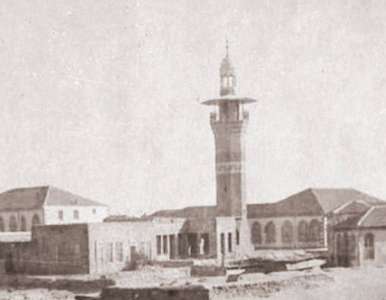There were three friends united by their love of knowledge and their reverence for their teacher. One afternoon, they entered the mosque and found their teacher, Yahya ibn Sa’id al-Qattan, delivering a lesson in Hadith, leaning against a mosque column. They stood respectfully, listening attentively until the call to Maghrib prayer, without sitting out of modesty—and the teacher never asked them to sit!
These three friends were inseparable, and how could they not be? They were destined to meet history together. Ali ibn al-Madini would become a master of ‘Ilal (the study of hadith flaws) and the teacher of Imam al-Bukhari, who once said: “I never considered myself humble before anyone except before Ibn al-Madini.” Yahya ibn Ma’in would become a master of ‘Ilm al-Rijal (the study of hadith narrators) and al-Jarh wa al-Ta‘dil (criticism and accreditation). The third, Ahmad ibn Hanbal, would become unparalleled in the science of narration, memorizing a million hadiths and leaving behind the Musnad al-‘Azim.
Moreover, Ahmad ibn Hanbal would rise to become the “Defender of the Sunnah,” a figure before whom history would hold its breath—just as it had held its breath in the cave during the revelation, when the Keeper of the Heavens commanded the Keeper of the Earth: “Read!” It held its breath again during the apostasy, when the Truthful One (Abu Bakr) stood alone, saying: “I will fight them even if I am alone… I will fight them as long as the sword is in my hand.” It held its breath at the Battle of Ayn Jalut, when Al-Muzaffar Qutuz exclaimed: “O Islam!”
History also held its breath during the ordeal of the Defender of the Sunnah. Scholars responded to the terror of Al-Mu’tasim under the lash of whips and the threat of beheading, taking the path of caution and taqiyya—but not Abu Abdullah. Whenever they advised him to compromise, he would say: “If the scholar answers with precaution and the ignorant persist in their ignorance, when will the truth become clear?” And he would ask: “Who will save me on the Day of Judgment from those who hold their pens, waiting to record my words? The masses will never agree with the truth, even if you stand alone.”
The Imam was imprisoned for two years and flogged 150 times, each lash a trial of patience and steadfastness. He never succumbed to intellectual terror; instead, he met it with resilience. One day, after a particularly harsh flogging, he returned to his cell in pain. A fellow prisoner groaned in despair. Abu Abdullah approached him and said: “I am Abu Al-Haytham Al-‘Ayyar, the thief! I endured 18,000 lashes in acts of sin for the world—can you not endure in obedience to God for the sake of religion?”
Al-Mu’tasim was frustrated with the Imam and commanded his executioners:
“Who will whip him?”
“I will,” said Abu al-Din.
“How many lashes?”
“Twenty.”
“Strike… cut… may God sever your hand!”
Yet the Imam survived. Every time he felt weakness, he recalled the words of his imprisoned companion. By God’s will, the Imam triumphed through patience, emerging from prison with both wounds and principle intact.
From the era of tribulation, three images endure:
- The image of Al-Mu’tasim opening the city of Amorium, while the Imam said: “I forgive Al-Mu’tasim for what he did to me, at the conquest of Amorium.”
- The Imam abandoning his companions who compromised during the lessons at the mosque, even turning away from them during his final illness. When Ali ibn al-Madini visited him, the Imam averted his face. Ali remarked: “Subhan Allah! Abu Abdullah, will you not forgive?”
- The Imam among his students, recalling his imprisoned companion, saying: “May God have mercy on Abu Al-Haytham.”



